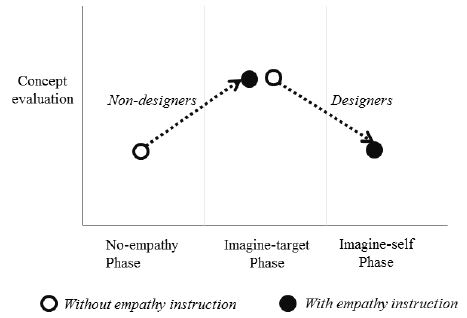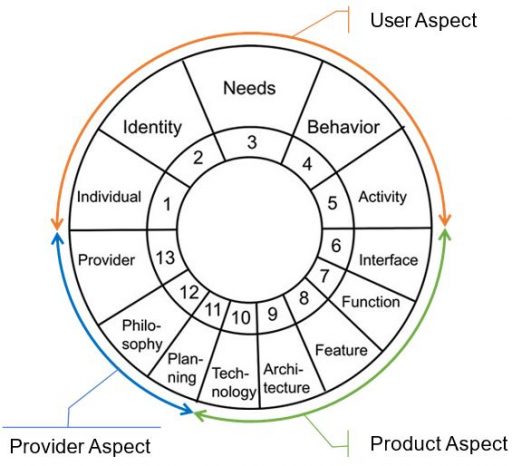- Chung, Jaehee and Jaewoo Joo (2017), “Effect of Empathy on Designers and Non-designers in Concept Evaluation,” Archives of Design Research, 30 (3), 57-71.

Abstract
Background: Empathy instruction (“please empathize with the person in the narrative”) is often provided when new product concepts are evaluated in a narrative form. However, concept evaluators tend to empathize with users differently; non-designers empathize with them insufficiently whereas designers do so sufficiently. Therefore, we expect that the effect of empathy instruction on concept evaluation will differ depending on the design expertise of individual evaluators. Empathy instruction will benefit non-designers whereas it may not benefit designers. We hypothesize that non-designers evaluate a concept more positively while designers evaluate the same concept more negatively when empathy instruction is provided than when it is not.
Methods: We conducted two studies with 74 practitioners (study 1) and 87 undergraduate students (study 2) by asking participants to evaluate a new service concept for long-distance communication. Half of the participants were provided with empathy instruction (“please watch a video clip about a long-distance couple”) and the other half were provided with control instruction (“please watch a video clip about nature). Then, we compared the concept evaluation scores between the two groups.

Results: The two studies showed that when the participants received control instruction, their concept evaluation scores between two groups did not differ. However, when they received empathy instruction, non-designers’ concept evaluation scores increased whereas designers’ concept evaluation scores decreased.
Conclusion: Our findings highlight the dark side of empathy in concept evaluation. When empathy instruction is provided for narrative concept evaluation, it needs to be used carefully depending on the individual concept evaluators. More discussions are needed for customized empathy.
Keywords
Concept evaluation, design expertise, empathy instructon, narrative concept, new product development
